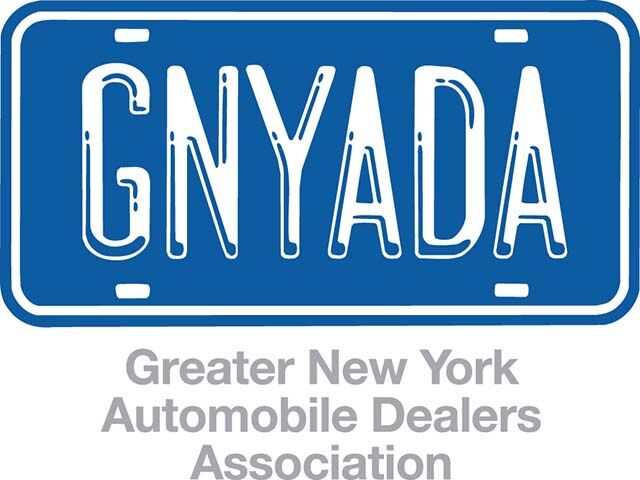Greater New York Automobile Dealers Association

The automotive landscape in the Greater New York area is a complex ecosystem, influenced by market trends, regulatory shifts, and the ever-evolving preferences of consumers. At the heart of this ecosystem lies the Greater New York Automobile Dealers Association (GNYADA), an organization wielding considerable influence on the industry's direction and the experiences of countless car buyers.
However, its impact is not without scrutiny, as questions arise about its role in shaping competition, consumer protection, and the transition towards electric vehicles.
This article delves into the GNYADA's activities, its impact on dealerships and consumers, and the challenges it faces in a rapidly changing automotive world.
The GNYADA functions as a powerful advocate for its nearly 400 franchised automobile dealerships across the five boroughs of New York City, Long Island, and the northern suburbs.
It lobbies on behalf of its members at the city, state, and federal levels, shaping legislation and regulations that affect everything from sales practices to environmental standards.
The association also provides its members with resources, training, and networking opportunities, aiming to enhance their competitiveness and operational efficiency.
The Role of Advocacy and Lobbying
One of the GNYADA's primary functions is to represent the interests of its member dealerships in the political arena.
This involves lobbying elected officials and regulatory agencies on issues such as franchise laws, emissions standards, and consumer protection regulations.
The GNYADA frequently files amicus briefs in court cases that could impact the auto industry.
The association’s lobbying efforts have been credited with protecting the franchise dealership model, which guarantees a network of independently owned businesses selling and servicing vehicles from major manufacturers.
This model is often touted as benefiting consumers by ensuring access to qualified service technicians and a wide range of vehicle options.
However, critics argue that the franchise model, protected by GNYADA's lobbying, stifles competition and prevents direct sales from manufacturers like Tesla, hindering consumer choice.
Impact on Legislation
The GNYADA's influence on legislation is undeniable, especially in New York State.
For example, the association has been involved in shaping the state's "Lemon Law," which protects consumers from defective vehicles, and in influencing regulations regarding vehicle emissions testing.
More recently, the GNYADA has been actively engaged in discussions surrounding the state's ambitious goals for electric vehicle adoption, advocating for policies that support dealership involvement in the EV transition.
Some argue that the GNYADA is primarily focused on maintaining the status quo, resisting changes that could disrupt the traditional dealership model, even if those changes would benefit consumers or the environment.
Consumer Protection and Fair Practices
The GNYADA emphasizes its commitment to consumer protection and ethical business practices.
It provides its members with training on compliance with consumer protection laws and encourages dealerships to adhere to a code of ethics.
The association also operates a mediation program to resolve disputes between consumers and dealerships.
The effectiveness of these efforts, however, is debated.
Consumer advocacy groups have raised concerns about deceptive advertising practices, hidden fees, and high-pressure sales tactics at some dealerships in the Greater New York area.
These groups argue that the GNYADA could do more to actively police its members and hold them accountable for violations of consumer protection laws.
The Role of Mediation
The GNYADA's mediation program offers a venue for consumers and dealerships to resolve disputes outside of the court system.
While the program can be beneficial for resolving minor issues, some consumers feel that it is biased in favor of the dealerships, who are the association's members.
Critics contend that the mediation process lacks transparency and that consumers may not be fully aware of their rights.
The Electric Vehicle Transition
The shift towards electric vehicles presents both challenges and opportunities for the GNYADA and its members.
The association is actively working to prepare its members for the EV transition, providing training on EV sales and service, and advocating for policies that support the development of EV charging infrastructure.
However, the transition is not without its hurdles.
Dealerships face significant investments in new equipment and training to service EVs, and they must adapt their sales strategies to appeal to EV-curious consumers.
Moreover, the potential for direct sales from EV manufacturers like Tesla poses a direct threat to the traditional dealership model.
Infrastructure and Policy
The GNYADA is pushing for government incentives and subsidies to support the installation of EV charging stations at dealerships and in public areas.
It also advocates for policies that ensure dealerships can participate in the sale and service of EVs, even as manufacturers explore alternative distribution models.
The association's success in navigating the EV transition will be crucial to the future of its member dealerships and the automotive industry in the Greater New York area.
The Greater New York Automobile Dealers Association faces a complex and evolving landscape.
Balancing the interests of its member dealerships with the needs of consumers and the demands of a rapidly changing industry requires a nuanced and forward-thinking approach.
Whether the association can successfully adapt to these challenges remains to be seen, but its actions will undoubtedly shape the future of the automotive industry in the Greater New York area for years to come.
